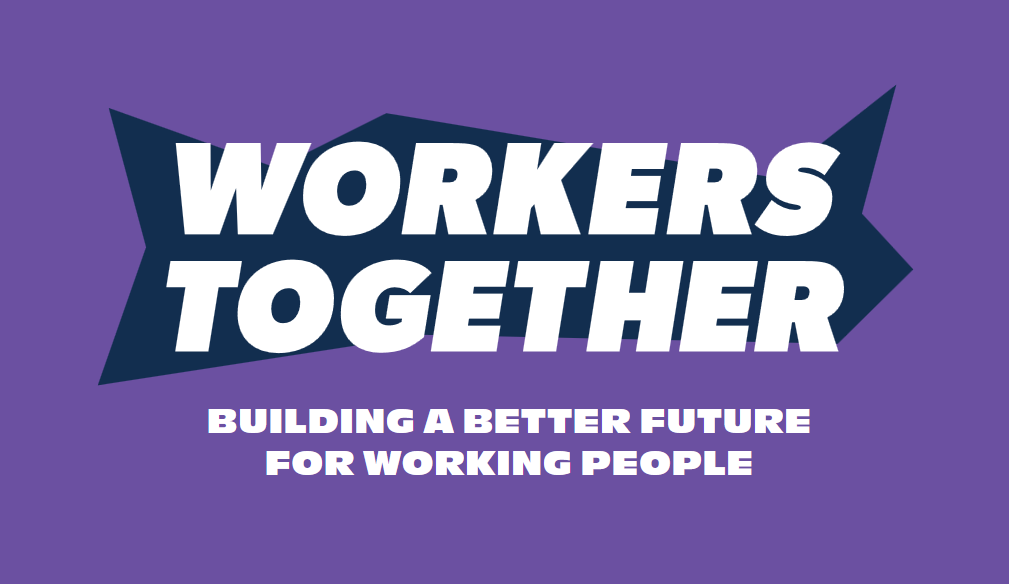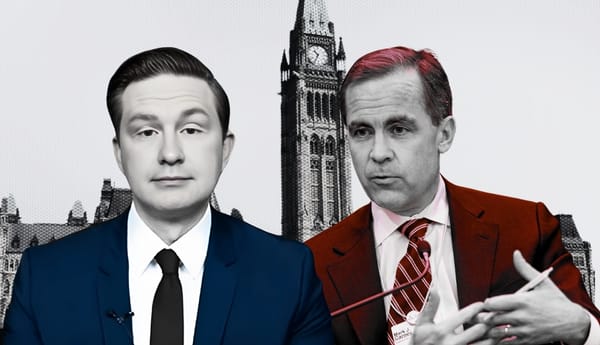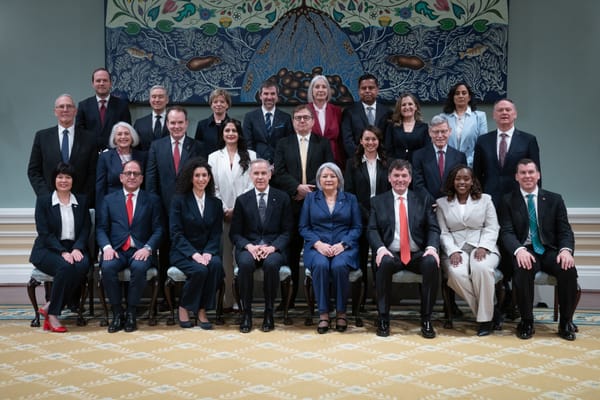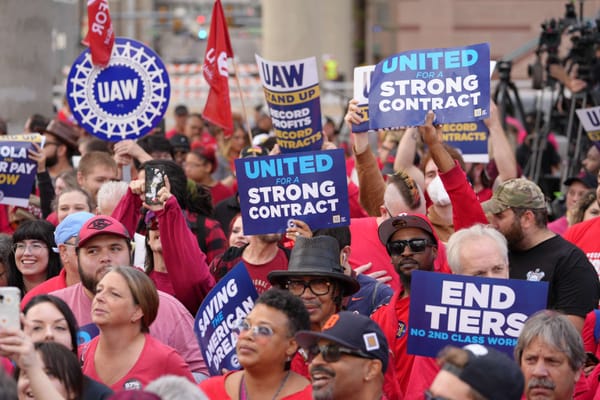
On August 27, workers at Manitoba Liquor and Lotteries (MBLL) voted to accept a tentative agreement reached between their union, the Manitoba Government and General Employees’ Union (MGEU), and the employer after over a month of job action.
The approximately 1,400 striking MGEU members at Liquor Marts and liquor distribution centres had been without a new contract since their previous collective agreement expired in March 2022. All but a handful of the 63 Liquor Mart locations across the province were shuttered by the work stoppage.
Although the final settlement fell somewhat short on the union’s wage demands, the strike nevertheless caused the employer — and the provincial government that was ultimately pulling the strings — to back off what were insulting wage concessions.
MGEU members will receive 12 per cent compounded wage increases across the four years of the contract, while some newer workers will see larger increases to help raise low wages at the bottom end of the distribution. Ultimately, the union accepted this settlement because it was paired with expanded pay scale adjustments tied to the provincial minimum wage, which will increase on October 1.
Rotating strike action, particularly at distribution centres, began on July 19 as contract negotiations with MBLL stalled. In the initial stages, MGEU members returned to work at Liquor Mart locations across the province, even as little progress was made with the employer in negotiations.
Full strike action commenced on August 8, after the employer informed the union in the days prior that it would lock workers out at various MBLL locations. With a province-wide work stoppage in full effect, Manitoba Liquor and Lotteries seemed more concerned with bargaining in the media than with reaching a settlement.
The employer even resorted to the use of replacement workers, or “scabs,” once the full-scale withdrawal of labour began. Unfortunately, employing scabs remains a lawful practice in Manitoba, despite the strong evidence that replacement workers prolong strikes, inflame picket line tensions and cause lasting damage to collective bargaining relationships. With a provincial election looming this October, the Manitoba New Democrats have given tepid campaign support to a “replacement worker ban.” The MBLL episode is one more example demonstrating why anti-scab legislation is so important.
On August 21, news broke that the conciliator brought in to help MGEU and MBLL reach a deal had apparently ‘recommended’ binding arbitration to end the dispute. Or at least this was the story the employer chose to tell publicly. As union staff would later clarify, the option of arbitration was mentioned only informally and was never formally recommended.
Having planted this seed, however, the employer was able to briefly craft a public narrative that presented itself as trying to reasonably end the dispute with state assistance while the union stubbornly refused. As MGEU pointed out, the parameters of arbitration needed to be negotiated ahead, a process that never took place.
The union was entirely correct to be wary of submitting its members’ future wages to binding arbitration. Employers favour arbitration when they stand to gain from it. With MBLL having barely moved on its initial wage offer, it was unlikely that an arbitrator would meet the union’s demands. More importantly, binding arbitration would have prevented union members from voting on the final terms of their contract. As I noted in a previous newsletter, employers seem to be looking to arbitration more frequently over the past couple of years as an alternative route to contain workers’ wage demands.
However, in Manitoba, a strike can be ended after 60 days through arbitration. As negotiations seemed to make little headway, many expected the clock to run out and employer-initiated binding arbitration to ultimately end the dispute. This may help explain why the union chose to accept the deal it ultimately did.
As the MGEU pointed out, before going on strike, many MBLL workers earned barely above minimum wage. The base starting salary at Liquor Marts in the final year of the last contract was just $14.91 per hour, while a worker with 2,000 hours worked would see their pay rise to $19.08 per hour. The provincial minimum wage is set to increase to $15.30 in the fall.
Despite their employees earning such low wages that the union argued workers were leaving MBLL for jobs at Walmart and Sobeys, the employer first offered the union yearly wage increases of 1.5, 1.75, 2 per cent and 2 per cent over four years, which resulted in an overwhelming strike mandate vote from union members.
Following the tentative agreement, Kevin Rollason at the Winnipeg Free Press reported that MBLL posted record profits of $741 million in 2022-23. The union’s claim the employer could easily afford to pay workers fairly seemed even more on the mark.
Strategically, the MGEU called on Manitoba Premier Heather Stefanson to direct MBLL to give the same percentage-based wage increase as the Premier gave herself: 3.3, 3.6 and 3.6 per cent over a three-year contract. The union also highlighted the “double standard” of awarding executives at MBLL substantive salary increases while freezing workers’ wages and then attempting to force them to accept a miserly 2 per cent following a cost-of-living crisis. CEO Gerry Sul and executive vice-president of liquor and cannabis operations Robert Holmberg each received a 16 per cent raise between 2018 and 2022.
The employer, under direction from the premier, refused to table new wage offers throughout the duration of the strike.
This round of bargaining took place under a direct “mandate” from the provincial Progressive Conservative government which stipulated that MGEU members at MBLL only be offered 2 per cent annual wage increases for four years.
Although the government publicly claimed to be ‘hands off’ on collective bargaining at Crown Corporations and public sector workplaces, letters sent to employees at MBLL and Manitoba Public Insurance (MPI) setting out the government’s “broad monetary mandate” indicated otherwise.
The PCs recent mandate to MBLL is just the latest in the government’s running list of interferences in public sector collective bargaining. In the previous round of negotiations, the provincial Conservatives imposed a four year wage freeze on MGEU members at Manitoba Liquor and Lotteries. Between this extreme government wage restraint and post-pandemic inflation, these workers have had their take-home pay decimated.
This “penny-wise and pound-foolish cost-cutting agenda,” as Niall Harney and Lynne Fernandez refer to it, has led to multiple strikes at Manitoba Crown Corporations in the last several years. As Harney and Fernandez note, the provincial government’s repeated interference in the bargaining process since 2016 has led to two strikes at Manitoba Hydro, this most current work stoppage at MBLL and now a strike at Manitoba Public Insurance, the non-profit company that administers auto insurance in the province. To the list could also be added imposed wage restraint at the University of Manitoba, which also led to strike action and ultimately a settlement.
These repeated “mandates” to impose wage restraint and cut staffing and costs have negatively impacted service quality and driven workers out of Manitoba Crown Corporations and public services. On multiple fronts, the Manitoba PCs have been a disaster when it comes to labour relations.
The Manitoba PCs’ approach to public sector labour is not the result of incompetence but rather political design. Hoping to follow the lead of Conservatives in other provinces, they are salivating at the prospect of privatizing liquor sales, a proposal that big alcohol would also love to see come to fruition.
MGEU has been fighting to keep Liquor Marts public. For now, members are off the picket lines and back on the job. But the struggle against Conservative austerity and reckless privatization continues.
Recent Class Struggle Issues
- August 28 | GTA Metro Workers’ Strike Is A Chance To Reform Grocery Industry
- August 21 | Energy Corps Reaping Super-Profits While Canadians Suffer
- August 14 | The Evidence For A So-Called ‘Summer Of Strikes’ Is Thin
- August 8 | UPS Workers And The Teamsters Have Achieved A Stunning Victory







